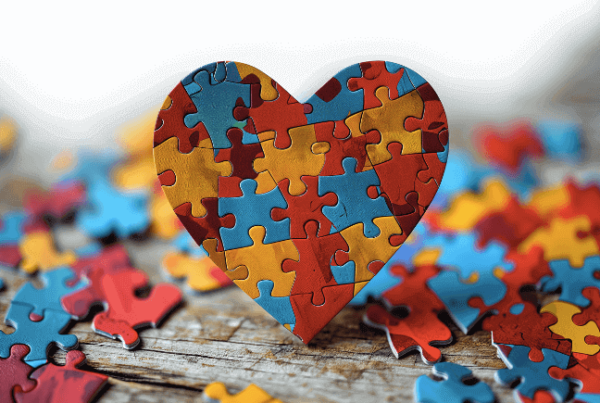Every relationship is unique. Each partner enters the relationship with a relationship pattern that they have developed through their life experiences. The way two people’s relationship patterns weave together determines the nature of their relationship.
While every relationship is unique, some are healthier than others. Some people come together and find that their relationship patterns fit brilliantly together right from the start, giving them an easy ride moving forward. Others experience that a relationship brings out the worst in them. Most relationships, however, fall somewhere in between these extremes.
This is why you will hear relationship experts talk about the necessity for continuous work in any relationship on things like communication, respect, trust and empathy. From my clinical experience, it seems to me that a key aspect in relationship health is to be on the same team and collaborate in promoting strengths and working through challenges that come up in these four areas. With this in mind, this article will briefly discuss the role of communication, respect, trust and empathy in turn, showing how they can take you on the road to a healthier relationship.
What Does A Healthy Relationship Look Like?
1) Communication
Everyone keeps talking about communication, but what is that about?
Communicating in a relationship is necessary if you ever hope to have your needs met. By communicating, you give your partner a chance to accept or reject your need, whether it is having a feeling validated, having someone do the dishes, or getting a hug. No one can read minds so if a need is not communicated clearly, it will probably not be picked up on.
Communication needs to go both ways, so there is also a need to listen to your partner’s communication. Finding a balance between communicating and listening can be difficult but continuous collaboration in working towards finding such a balance can make wonders in a relationship.
As a side note, ‘balance’, in this case, does not necessarily mean ‘same.’ It is important to stay aware that we all have different ways of communicating and we have different needs. While one person may feel a strong need to communicate how they are feeling every day, the other may find it sufficient to talk about their feelings once in a while.
It is important to accept differences between you and your partner in the relationship. When you accept that your partner is their own unique individual with needs different to your own, you can negotiate a balance of communication that suits you both well enough to feel heard and respected in the relationship.

2) Respect
Another cornerstone of a healthy relationship is mutual respect. Respect involves valuing your partner’s opinions, acknowledging their feelings, and respecting their boundaries. Respect is about seeing the value of your partner as their own unique individual who may have things in common with you but who is also different.
But what if my partner says something stupid? Respecting someone does not mean agreeing with everything they say. Rather, it is to value them and their views regardless of disagreements and differences. It is about treating them as an equal whose needs, opinions, and wellbeing, are as important as your own.

3) Trust
Is trust really necessary? Trust leads to a feeling of security in the relationship. This makes it a lot easier to be on the same team, to bring up problems and solve them together, to communicate honestly, to focus on tasks, to feel content in the relationship, and to have friends outside the relationship, both mutual and personal.
Trust enables you to enjoy the person you are with when you are with them as well as pursuing your own personal interests when you are on your own. Lack of trust is often characterised by a preoccupation with what the partner is doing and thinking. This can become distracting and give rise to a range of destructive emotions, such as jealousy, fear, and anger.
Trust can be nourished by not lying. I say ‘not lying’ because ‘telling the truth’ is sometimes confused with telling the partner everything, which is not necessary. You can consciously withhold information from your partner while being honest with them that you are doing so. This gives them a choice about whether to accept your level of privacy or not, whereas if you lie to them, you rob them of choice in the matter.

4) Empathy
Why is empathy important in a relationship? Empathy is our ability to understand the feelings of another, and ‘put ourselves in their shoes.’ Showing empathy is to communicate this understanding back to the other.
In healthy relationships empathy is felt and communicated both ways. Doing this successfully makes partners in a relationship feel more emotionally connected and supportive of each other.
Empathy also makes it easier to resolve conflicts that inevitably arise in relationships. It is much easier to compromise or find solutions to problems when you know how the other person feels. Furthermore, a partner that feels understood is more likely to be able to process and move past issues that arise than one that doesn’t.
Empathy in a relationship can be nourished through mutual effort in communication and genuine interest in understanding a partner’s feelings. As a rule of thumb, imagine that you are feeling what your partner describes, what would that be like for you?
Try to avoid comparing how you would react to something to how your partner reacts to it. You may be less affected by an issue your partner struggles with but that does not mean their feelings aren’t real.

Do Not Let Resentment Grow!
An additional note: If the four points above are working well in a relationship, resentment should not easily get a chance to grow. However, if for whatever reason you or your partner starts feeling resentful, something needs to be done about it.
Resentment towards a partner is a warning sign that something is wrong, and action is needed. One problem people experience in their relationship is that they respond to their feelings of resentment by being quiet, passive aggressive, or waiting for a chance to punish their partner for whatever caused the resentment.
Unresolved resentment tends to grow and can become destructive in relationships. When you feel resentful, you must act in a way that reduces this feeling. This could mean communicating with the partner what needs to change or seeking advice from someone who can see your relationship from an outsider’s perspective. Whatever you do, do it from a place of wanting to make things better for you and your partner, don’t wallow in it by gossiping about or punishing your partner.
Concluding Thoughts
Although every relationship is different, there are variables we can look at when thinking about how healthy they are. If both partners work together on the relationship with the intention of nourishing communication, respect, trust and empathy this is a good sign. That is not to say that these need to be perfect, as they probably never will be. Rather, they should be seen as some of the core values that a relationship works towards.
A book that repeatedly gets recommended by experts for improving one’s relationship is the Gary Chapman’s ‘5 Love Languages’. You can also find more information about maintaining healthy relationships and mental wellbeing here.




